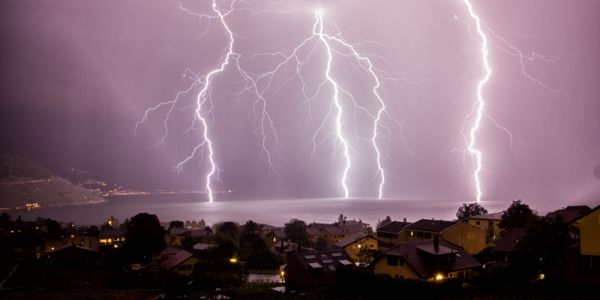As the power of extreme weather events increase with climate change, a team of scientists warn that lakes around the world may dramatically change, threatening ecosystem health and water quality.
And the international team reports that our limited understanding of how lakes—especially algae at the base of food webs—may respond to more-extreme storms represents a knowledge gap that increases the risk.
The team of 39 scientists from 20 countries on four continents investigated what is currently known about how lake ecosystems respond to extreme storm events. The scientists found they cannot confidently predict how lakes will respond to the more frequent and intense storms that are expected in a warming world.
“If extreme weather events significantly change carbon, nutrient, or energy cycling in lakes, we better figure it out quickly,” said Jason Stockwell, an aquatic ecologist at the University of Vermont who led the new research with support from the National Science Foundation, “because lakes can flip, like a lightbulb, from one healthy state to an unhealthy one—and it can be hard or impossible to flip them back again.”
Continue reading at University of Vermont
Image via University of Vermont


